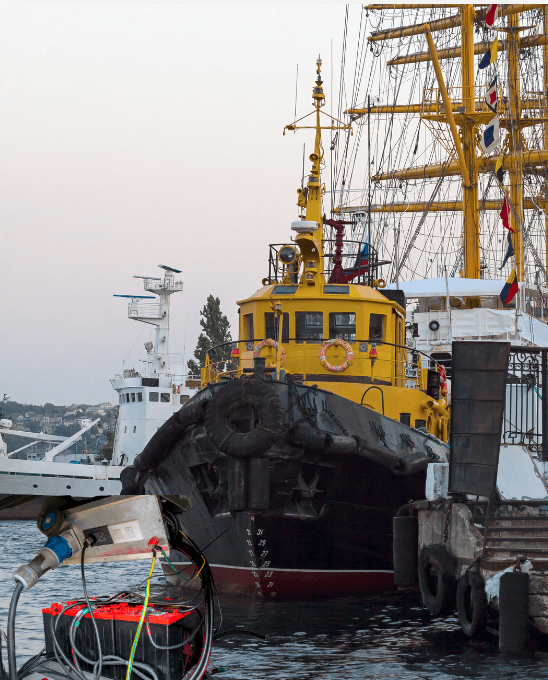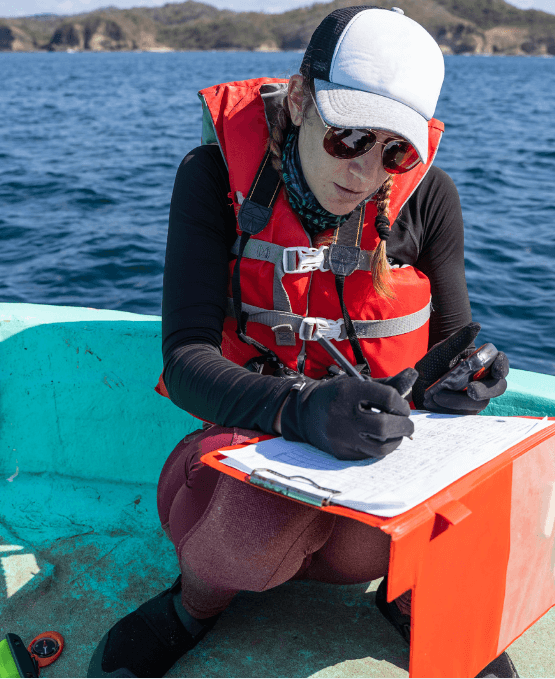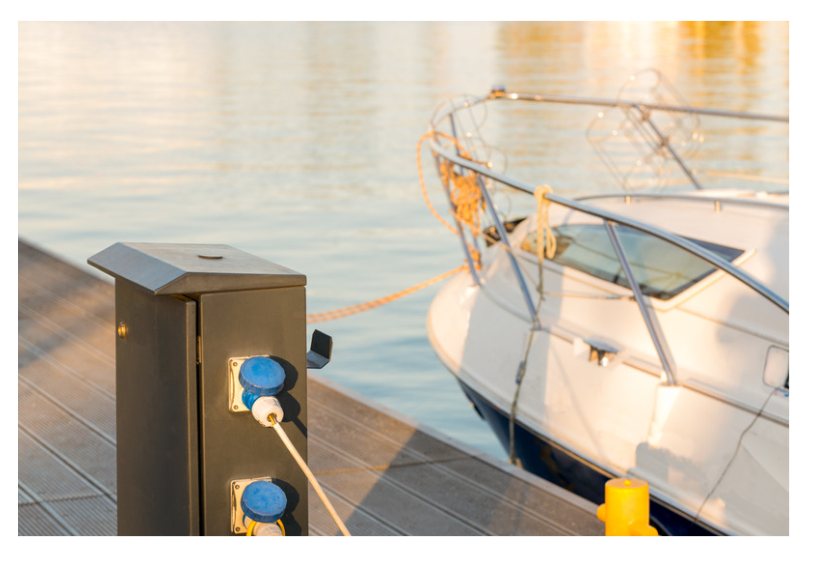If you’re an experienced boater or interested in marine applications, choosing the right battery is one of the most important decisions you’ll make.
And when your ship is out at sea, reliability is paramount and this is where deep cycle marine batteries really shine. These batteries offer a powerful combination of performance, durability and reliability, making them a must-have for any serious mariner.
Today we will tell you why deep cycle marine batteries should be on the list of best picks and why they stand out from the rest:
How are deep cycle marine batteries different from starter batteries?

Starter batteries are optimized to provide fast, high-capacity energy to start your engine. They are not designed for deep discharge and continuous use. Regular discharging of starter batteries will severely shorten their lifespan.
But deep cycle marine batteries, in contrast, are batteries designed to provide lower but more sustainable levels of power for longer periods of time.
They can handle deep discharges without being damaged, which is why they are preferred for marine applications requiring prolonged power.
Best Benefits of Using Deep Cycle Marine Batteries
There are many advantages to using deep cycle marine batteries over other types of batteries, some of the best are:
Long life span
A primary reason why deep cycle marine batteries should be at the top of your list is their longevity. Deep cycle batteries are engineered to withstand more charge and discharge cycles than traditional starter batteries. This extended cycle life makes them a cost-effective choice in the long run, as you won’t have to replace them as often.
While regular lead-acid batteries may last only a few hundred charge cycles, high-quality deep cycle marine batteries can last up to 1,000 cycles or more. This durability is crucial when you’re out on the water and need consistent, reliable power for your boat’s systems.
Durability under harsh conditions
The marine environment can be punishing. Salt water, high humidity, temperature fluctuations and vibrations from boat engines all contribute to a hostile operating environment for batteries. Deep cycle marine batteries are specifically designed to withstand these challenges.
Many marine deep cycle batteries have advanced casing material and are sealed from moisture and corrosion, making them highly durable even in the harshest marine conditions. Furthermore, their robust internal construction makes them resistant to vibration, a common source of wear on standard batteries.
Compatible power supply
When you’re on the water, you rely on your battery to provide a consistent and reliable power supply for hours. Whether you’re using it to power lights, fish finders, trolling motors or other electronic devices, you need a battery that won’t let you down.
Deep cycle marine batteries are designed to discharge power continuously for long periods of time. Unlike starting batteries, which provide a quick burst of energy and then need to be recharged, deep cycle batteries maintain consistent energy levels for longer periods of time. This makes them ideal for marine applications, where you need to keep equipment running without worrying about power dips.
Superior performance for trolling motor
Trolling motors are an essential component for fishing boats, providing quiet propulsion that helps avoid spooking fish. Trolling motors require a constant power supply for extended periods of time and deep cycle batteries are perfectly suited for this task.
Many anglers prefer deep cycle marine batteries because they can provide continuous power for trolling motors without overheating or losing charge too quickly. Additionally, these batteries can handle repeated deep discharges without degrading performance, making them ideal for all-day fishing trips.
Dual-purpose functionality
Although deep cycle batteries are primarily designed for extended power delivery, many modern marine batteries offer dual-purpose functionality. These batteries combine the features of a starter and deep cycle battery in one unit, providing both the initial burst needed to start your engine and the steady power needed for your boat’s electronics.
Dual-purpose batteries can be a great option for boaters looking to simplify their power system, as they eliminate the need for separate starting and house batteries. However, it’s worth noting that while they offer versatility, they can’t perform as well as a dedicated deep cycle battery for extended use.
Environment friendly
Deep cycle marine batteries, especially those based on AGM (absorbed glass mat) or lithium-ion technology, are increasingly recognized for their environmentally friendly design. These batteries have lower emissions during use and are more energy-efficient in charging and discharging cycles than conventional lead-acid batteries.
Lithium-ion marine batteries, in particular, are known for their long lifespan and recyclability, which reduces the number of batteries ending up in landfills. Many manufacturers also incorporate eco-friendly materials into their battery construction, ensuring a low environmental impact throughout the battery’s life cycle.

How do you choose the right deep cycle marine battery?
Remember, choosing the right deep cycle battery depends on several factors, including the size of your boat, your power requirements, and how often you will use the battery. But know some basic things:
Battery Capacity (Amp Hours)
Amp-hours (Ah) are the basic measure of a battery’s capacity. It indicates how much power the battery can store and deliver over time. The higher the amp-hour rating, the longer the battery can last without recharging.
For most marine applications, a battery with a capacity of 100-200 Ah should be sufficient, but you may need more depending on the size of your boat and the devices you plan to run.
Voltage
Most marine batteries are 12V, but you can also find 6V batteries, which are commonly used in pairs for larger vessels. Make sure you choose the appropriate voltage for your system and that it matches your boat’s electrical requirements.
Battery type
Decide whether you want a lead-acid, AGM, gel or lithium-ion battery based on your specific needs. While lead-acid batteries are the most cost-effective, AGM and lithium-ion batteries offer superior performance, lifespan and maintenance-free operation.
Weight and size
Marine batteries can be heavy, which can affect your boat’s performance. Lithium-ion batteries are significantly lighter than their lead-acid counterparts, making them ideal for weight-sensitive applications. Be sure to measure your battery compartment to make sure
Budget Options:
Interstate deep cycle batteries are among the more affordable choices, typically priced around $100-$150. These batteries use reliable, proven wet cell technology, but they may not deliver the same power as premium models.
Mid-Range Options:
The Optima 8016-103 D34M, a dual-purpose deep cycle battery, is a solid choice for reliable power and durability, priced around $250-$300. It offers high cranking power and a maintenance-free design.
The Renoji Deep Cycle AGM battery, a 100Ah model, can be found for around $250, offering a long life of up to 10 years and maintenance-free operation.
Premium Options:
The Vmaxtanks VMAXSLR125, which has a capacity of 125Ah and long-lasting performance, usually costs around $300-$400.
Dakota lithium batteries can range from $150-$450 depending on their size and capacity. These are lightweight, long-lasting batteries designed for extended use
That being said, prices can range from around $100 for the basic model to over $400 for the premium lithium options.
